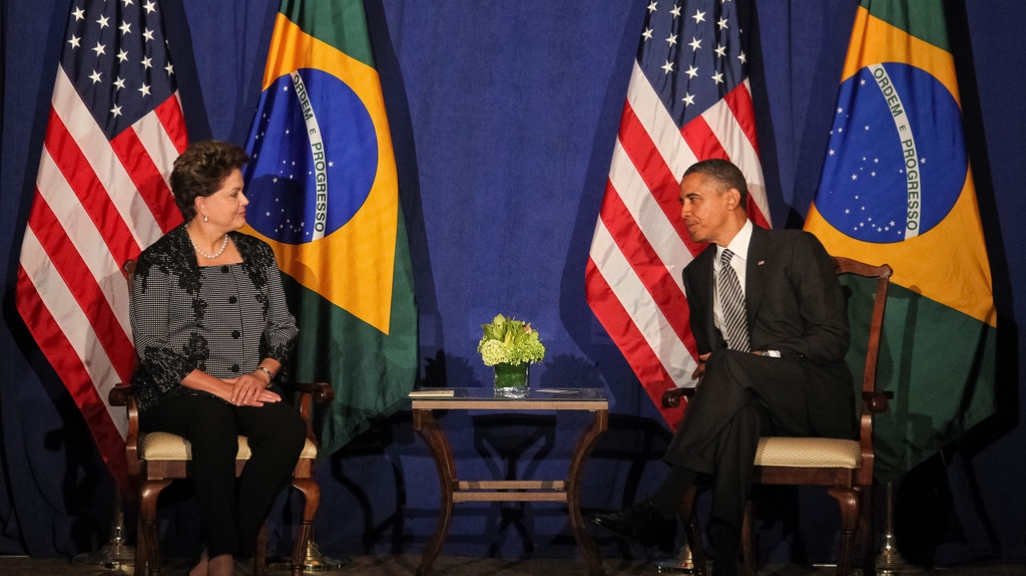As Brazil Snubs the U.S., Who Loses?
As Brazil Snubs the U.S., Who Loses?
Brazilian President Dilma Rousseff’s U.S. state visit cancellation is a “set-back for both nations, but ultimately Brazil will shoulder a higher cost,” writes AS/COA’s Eric Farnsworth for The New York Times’ Room for Debate.
After calling off a state visit to the White House because of revelations that the National Security Agency had spied on her personal communications, President Dilma Rousseff of Brazil told the U.N. General Assembly on Tuesday that the spying had violated international law and principles of human rights.
The dispute has stalled efforts to continue strengthening relations between the two countries as Brazil’s economic power has grown, and Washington has tried to reduce the influence of China. But which country has the most to lose from the deterioration in relations?
Brazil Has More to Lose
by Eric Farnsworth
The cancellation is a set-back for both nations, but ultimately Brazil will shoulder a higher cost. By slapping the United States so publicly, and then reinforcing the message during the United Nations General Assembly, President Dilma Rousseff has frozen the bilateral agenda and created conditions that will be difficult to move beyond in the near term. After all, it’s strange to demand an apology from the United States for spying without acknowledging that other countries do the same.
The United States is parsimonious in offering state visits, the highest diplomatic recognition that can be offered to foreign leaders. The last state visit of a Brazilian leader was in 1995. Washington went further this time: in recognition of Brazil’s growing global influence, the White House offered President Rousseff the only state visit in 2013. It was an honor that the Brazilian government actively sought.
Cancellation of the visit is playing well enough in Brazil, at least among Rousseff’s political base if not the business community. But achieving Brazilian ambitions at a global level, for example a permanent seat on the U.N. Security Council, will be smoother with U.S. acquiescence, to say nothing of active support. This will depend on the extent to which Washington believes Brasilia’s interests lie in supporting the broad Western agenda, rather than positioning itself primarily as a BRIC (Brazil, Russia, India and China) nation that some see as opposed to U.S. interests.
For its part, Washington will seize every opportunity not to have to focus on Latin America. It’s a loss, to be sure, but with numerous other options, the White House may nonetheless be reluctant to offer another state visit anytime soon to a Latin American leader who appears to be going out of her way to publicly condemn the host.
This opinion is part of NYTimes.com's Room for Debate series. Click here to read all the entries in this online debate.







